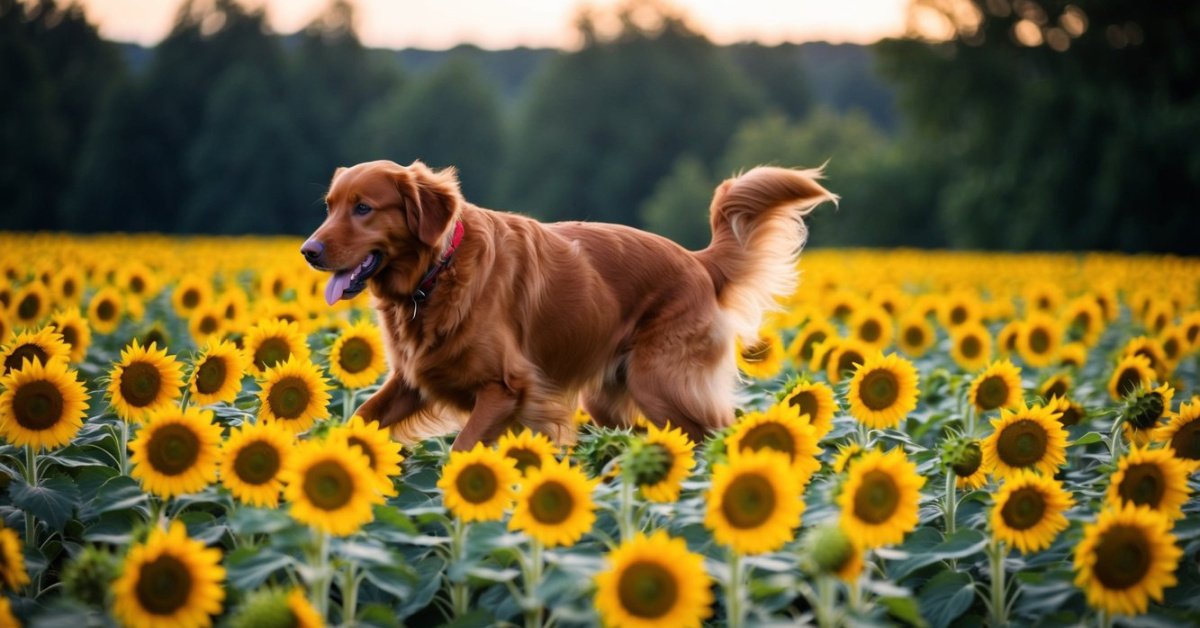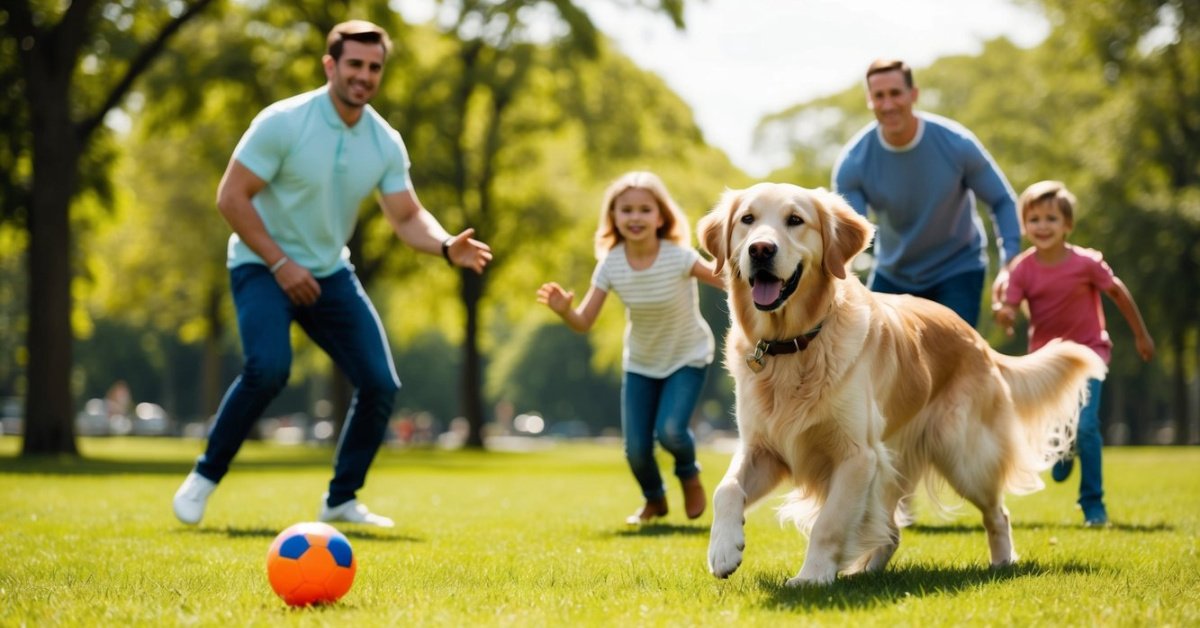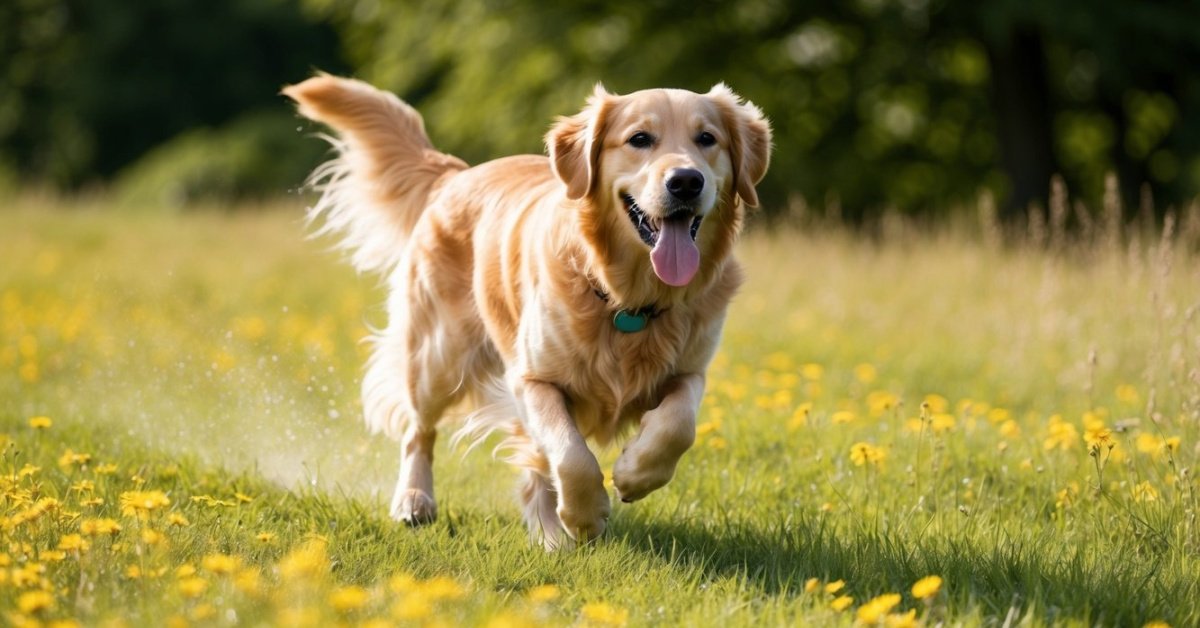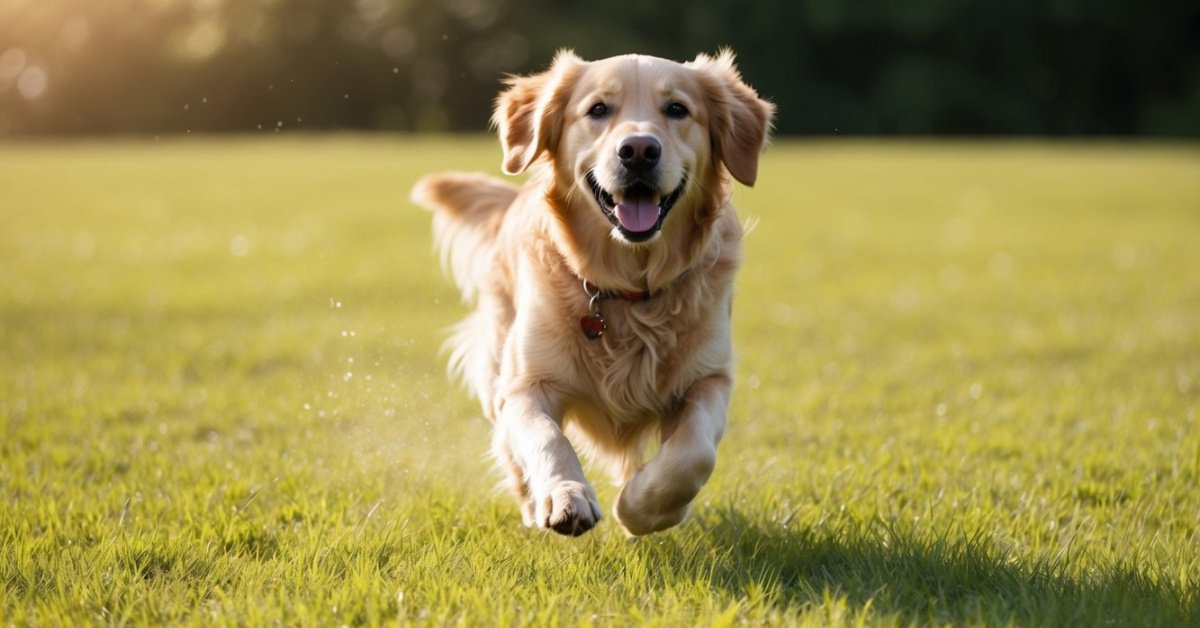The Ultimate Golden Retriever Puppy Guide: Expert Tips for a Smooth Transition to Adulthood
Bringing home a Golden Retriever puppy is an exciting time filled with cuddles, playtime, and a whole lot of love. But as any seasoned dog owner knows, it’s important to be prepared for the different stages your furry friend will go through. That’s where this article comes in.
As someone who has worked with thousands of dogs through dog shelters and breeders, I understand the importance of understanding the Golden Retriever breed and its history, as well as the growth stages and milestones your puppy will go through. We’ll also cover training and socialization tips, as well as caring for your pup’s health and grooming needs during the puppy stage.
And when it’s time for your puppy to transition to adulthood, we’ll share advice for ensuring a smooth and happy transition. So if you’re a new Golden Retriever owner looking to give your pup the best start in life, keep reading.
Understanding the Golden Retriever breed and its history.
The Golden Retriever breed is one of the most beloved and popular dog breeds in the world. Originally bred in Scotland as hunting dogs, they are known for their friendly disposition, intelligence, and loyalty.
As a new owner of a Golden Retriever puppy, it is important to understand their history and characteristics. This will not only help you provide better care for your pup but also create a stronger bond between you two.
The timeline of a Golden Retriever puppy starts with careful breeding by responsible breeders who aim to produce healthy puppies with desirable traits such as good temperament and physical attributes. Once born, these puppies require proper socialization during their critical period (between 3-14 weeks) to ensure they develop into well-adjusted adult dogs.
Training should start early as well since this breed loves learning new things. Positive reinforcement techniques work best with Goldens since they are sensitive souls that respond well to praise rather than punishment.
It’s important to note that despite being friendly dogs overall, some may have certain health issues due to poor breeding practices or genetic predispositions such as hip dysplasia or cancer. Regular check-ups at the vet can catch any potential problems early on so your pup can live a happy and healthy life.
In summary, understanding the history behind this wonderful breed will allow owners like you to provide them with the love and care that they deserve while creating an unbreakable bond between both parties through training sessions filled with patience towards each other’s needs!
Golden Retriever puppies’ growth stages and milestones.
Golden Retriever puppy growth stages and milestones are important to understand for new dog owners who want to ensure their furry friend grows up healthy and happy. As someone who has worked with thousands of dogs through dog shelters and breeders, I can tell you that the first year of a Golden Retriever’s life is crucial for their development.
In the first few weeks, your puppy will be completely dependent on its mother for food, warmth, and security. During this time, they will grow rapidly – gaining weight every day until they reach around 8-10 weeks old when it’s safe to take them home.
At this point in time, your puppy will start learning how to interact with humans properly. You’ll need to start socializing them by introducing them slowly but surely into new environments so that they don’t become too overwhelmed or scared.
Around three months old is when your pup starts teething; during which you may notice chewing on everything as his teeth come in. This stage lasts until six months old; make sure he has plenty of toys appropriate chew items available at all times!
From six months onwards there are further developments such as sexual maturity starting (of course meaning spaying or neutering). At approximately one year old a Golden Retriever usually reaches full size although some larger males may continue growing up till two years age .

As an owner it’s important during these times not only provide basics like nutrition exercise love but also proper training early on . By doing so you can help set boundaries establish routines build confidence while encouraging good behavior ultimately leading towards a long lasting healthy relationship between owner & pet!
Training and socialization for Golden Retriever puppies.
Training and socialization are critical components of raising a well-behaved and happy Golden Retriever puppy. As someone who has worked with thousands of dogs through dog shelters and breeders, I can attest to the importance of starting training early.
The first few months are crucial for establishing good habits in your furry friend. Socializing your puppy with other dogs, people, and environments is essential during this time as it helps them develop appropriate behaviors around others.
Training should be done consistently but gently. Positive reinforcement techniques like treats, praise, or toys can help encourage desired behavior without resorting to harsh punishment or aggression.
It’s also important to remember that every puppy is unique and may have different needs when it comes to training. Some may respond better to clicker training while others might prefer verbal commands.
Overall, patience is key when it comes to raising a Golden Retriever puppy. With consistent training and socialization efforts, you’ll be able to enjoy many happy years with your loyal companion by your side!
Health-care and grooming needs during the puppy stage.
Congratulations on your new furry addition to the family! As someone who has worked with thousands of dogs through dog shelters and breeders, I can tell you that the puppy stage is a crucial time for health care and grooming needs.
Firstly, it’s important to establish a routine with your golden retriever puppy as soon as possible. This means scheduling regular vet check-ups, vaccinations and deworming treatments. It’s also important to keep an eye out for any signs of illness or discomfort throughout this period.
When it comes to grooming, golden retrievers have thick double coats that require regular brushing and bathing. Brushing helps remove excess hair from their coat which prevents matting or tangling while bathing helps keep them clean and hygienic.
Aside from physical health care needs during this stage, training is also essential for puppies so they can learn basic commands such as sit, stay or come when called. Positive reinforcement techniques are highly recommended in order to build trust between you and your pup.

In conclusion, taking good care of your golden retriever puppy during their early stages will set them up for a healthy life filled with love! Remember that patience is key when dealing with puppies; they’re still learning about the world around them so be gentle yet firm when guiding them through these early stages of life.
Preparing for Adulthood: Transitioning from Puppy to Adult Golden Retriever.
Preparing for adulthood: transitioning from puppy to adult Golden Retriever can be a challenging task, but with the right guidance and training, it can also be an incredibly rewarding experience for both you and your furry friend.
As someone who has worked with thousands of dogs through dog shelters and breeders, I have seen firsthand the importance of setting clear expectations early on in a Golden Retriever’s life. While puppies are cute and cuddly, they require constant attention and supervision to ensure they develop into well-behaved adults.
One key aspect of preparing your Golden Retriever for adulthood is socialization. This involves exposing them to different people, animals, environments, sounds, smells – essentially anything they may encounter in their daily lives as an adult dog. By introducing your puppy to new experiences in a positive way during their critical socialization period (between 3-14 weeks), you are helping them build confidence and resilience that will benefit them throughout their lives.
Another important factor is obedience training. Teaching basic commands such as sit, stay or come when called sets the foundation for good behavior later on. Consistency is key here; make sure everyone in your household uses the same commands consistently so that your pup doesn’t get confused.

Finally – exercise! As puppies grow into young adults (around 6-18 months), they will start having more energy than ever before. Regular exercise not only provides physical benefits but also helps release pent-up energy that could otherwise lead to destructive behaviors like chewing or digging.
In summary – socialization + obedience training + exercise = happy healthy adult Goldie! Remember that every dog develops at their own pace; some may take longer than others to reach certain milestones but patience combined with consistency goes a long way towards ensuring success down the road!
Conclusion
Owning a Golden Retriever puppy is an amazing experience, but it does take work. From finding the right breed and understanding their history to providing adequate health care and properly socializing your pet, there are plenty of things to consider when raising your furry friend. With the information provided in this article you should now have all the tools you need for a successful puppy-raising journey!











